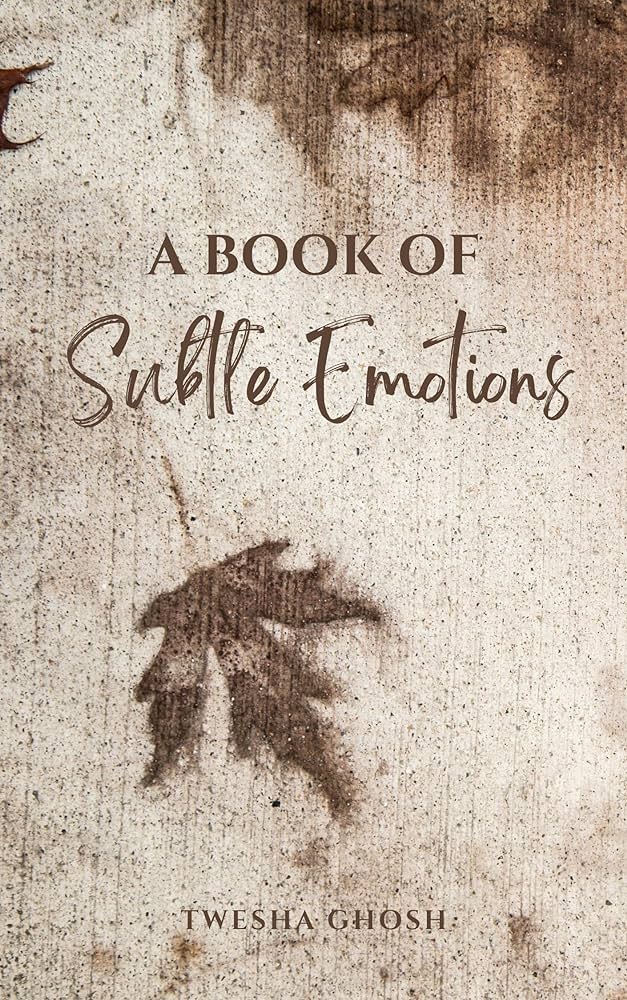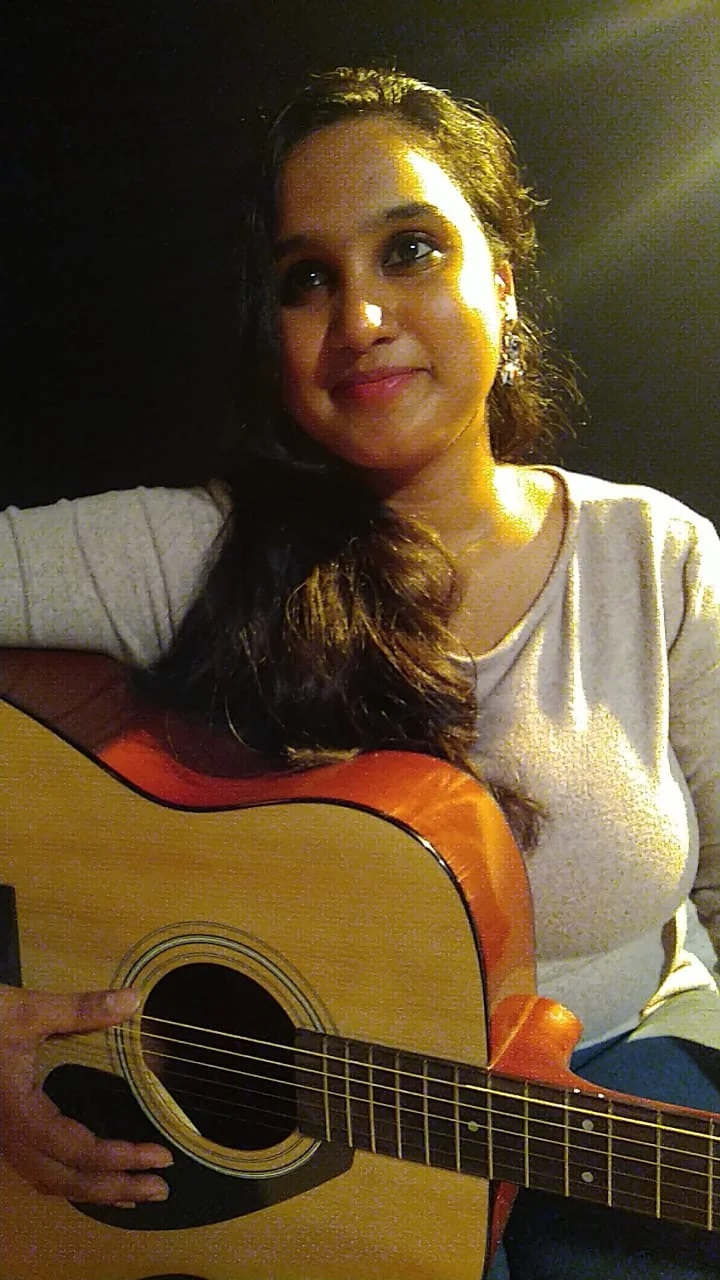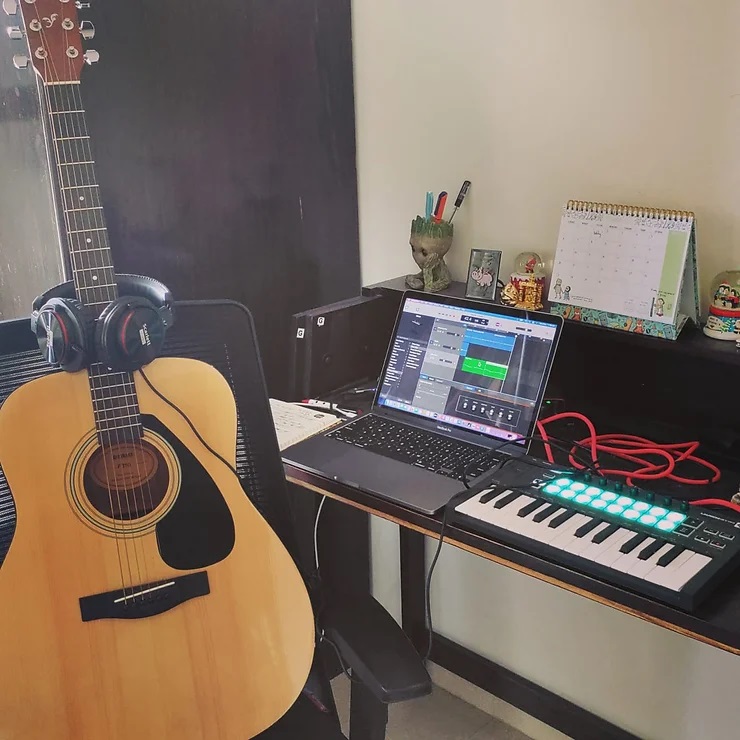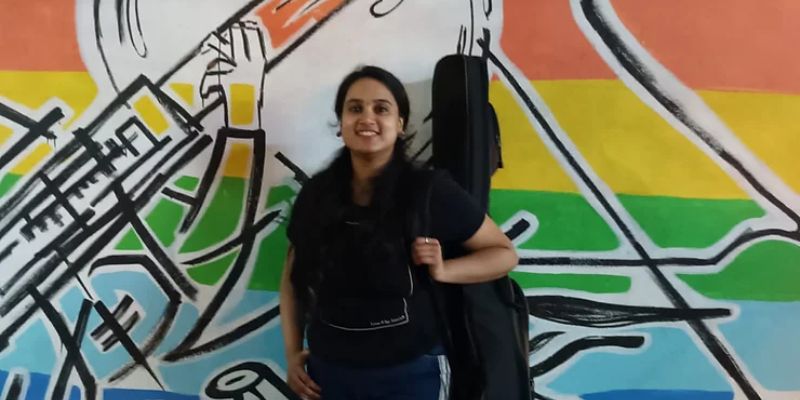Twesha Ghosh On Her Debut Single ‘Khoyi’, Working With Taaqademy and Creating Music As A Synesthete
From recording a rough phone recording to putting out a full-fledged song, Twesha Ghosh’s journey has been nothing short of inspiring. Her approach to music is one of the most unique we’ve come across, and the results are awe-inspiring.
We spoke to the singer-songwriter, who currently studies vocals and guitar with us, about the release of her debut single ‘Khoyi’, how Taaqademy helped with the production of the song, finding out that she had synaesthesia through music, and how she uses it to help her songwriting process. Read on to find out!
Note: The interview below has been edited for clarity.
First of all, congratulations! ‘Khoyi’ is such a beautiful song. This is your first ever official release, but is it the first song you’ve ever written?
To be honest, I’ve written many bad songs that are still lying in my diary and as clips on my phone. I don’t think I intend to do anything with them as of yet (laughs). But you can say that this is the first song that has reached a finished product stage.
How does it feel to have your own music officially out in the world?
It feels amazing. When you’re writing it, you feel that maybe it’s absurd and people won’t get it. But then, the most beautiful part is when they relate to it in their own manner. So it feels beyond words and like your own baby is out there. It’s next level!
Music is not primarily what takes up your time, you are a corporate employee as well. What is it that you do, and how have you been managing the work-life-music balance?
Music is not primarily what takes up your time, you are a corporate employee as well. What is it that you do, and how have you been managing the work-life-music balance?
What inspired you to write Khoyi?
The main point of Khoyi is that we’re always lost. We’re always physically present somewhere but mentally present elsewhere. It was all the more relevant when I wrote it, because it was during the peak of the second wave, in June 2021. You had a lot of time to reflect, and at that point, I had recently lost my grandfather who I was very close to.
But if you ask me whether the song is about my grandfather, I cannot say yes or no. It’s just about how trivial everything is. Today something could be there and tomorrow it may not be, but ultimately we all have to exist on our own. We’re all ‘Khoyi’ in some sense or the other in this vast space.
Have you always been musically inclined? Or is it something that you’ve developed over time? How did Taaqademy come into that equation?
I have been with music since my childhood and for as long as I can remember. My first ever guru was my grandmother. She is a Sangeet Visharad, which is the highest degree you can obtain in Hindustani Classical music.
Initially for me, music was all about vocals. It was all about vocal techniques and ragas, more on the Indian side. My dream as a child was to become a playback singer. The only thing I wanted to do was sing in movies!
But as I grew up, I thought “why restrict myself to that? I can do more.” So then I started learning the guitar. Taaqademy came in with my journey of trying to learn guitar, but even before Taaqademy I had tried learning through various teachers. It went okay, but I was not getting that conceptual base which is required to delve deep into it. Slowly I started expanding and learned GarageBand.
Having a good idea of music theory got me into songwriting. And poetry is something I’ve been into since childhood, so I blended my own style of poetry with my songwriting.
It’s great to hear how you’ve been able to blend poetry and your music together!
In fact, I even published my first poetry book this year! It’s called ‘A Book of Subtle Emotions’, and it’s available everywhere now.
Would you say your love for poetry has helped you write lyrics for your songs?
Personally, I don’t think they’re related. When I write a poem, I have the intention of writing a poem without any intention of converting it into a song. When I write a song, it starts with the intention of writing a song, so I write the lyrics accordingly. I have a good relationship with words, and more often than not, whatever I feel, I am able to express it in words. So that’s definitely an added advantage.

Buy on Amazon
How does your synesthesia affect your songwriting?
I used to think that everyone feels this way, that whenever there is a sound, there is a colour. It was a very normal thing for me. One day I was in class and I was learning about Major 7 chords, which are very dreamy sounding, and I thought that they sounded pink in colour and very glittery. That’s when Bruce sir mentioned to me, “I think you’re a synesthete”. After reading about it, I was like, “Oh my God, I am one!”
So for as long as I can remember, every song has a colour in my mind. So when I was writing Khoyi, the song consisted of three colours: royal blue, indigo and purple. The biggest challenge while getting to the production phase was making sure that these colours remained intact. Taaqademy has done a fabulous job with retaining the colours and adding some glitter to the song.
Even when I’m working on something on GarageBand, I start with a colour in mind. Now I’m writing a song called ‘Soye Ho Tum’, which is about the joys of watching someone sleep. The colour I decided on for it was an acoustic wood and a little bit of pink. As long as the sound or tone is triggering that colour in my mind, I know that I’m going in the right direction. It’s kind of a guiding factor, and I see it in my mind’s eye.

What are your future plans? Are you planning on releasing more music, playing live, or something else entirely?
My current foreseeable goal is to create a lot more music and to get more comfortable with the guitar and GarageBand because I’m at an intermediate stage with both. I am not very keen on performing live as of yet because I want to first create my own mark. I want people to first like my music and expression and then start doing gigs.

What is your advice for someone who wants to put their own music out there but is unsure how to do it?
My simple advice would be just to start, because we all have to start somewhere. Nobody knows the way, and we will figure out the way once we take the first step.
The beautiful thing about Instagram and other social media platforms is that people will watch your content and then forget about it, even if it’s bad.
Another very important thing is to not judge yourself and your creations. If you don’t like what you’ve created, don’t say “Oh my God, I suck at this”—no, it’s okay! Just try again, maybe tomorrow or after a few weeks, whenever you feel better.
Unlike everything else, I don’t think creativity can be put into a routine. Practicing can of course be regular, but ideas can have a mind of their own sometimes, so it’s best not to fret and fume about these things.
Taaqademy is home to a huge number of creative minds and hardworking artists who have always been at the forefront of the Indian music scene, and as a result, putting out their own songs and compositions. Get in touch with us if you’d like us to produce your next song or album!




